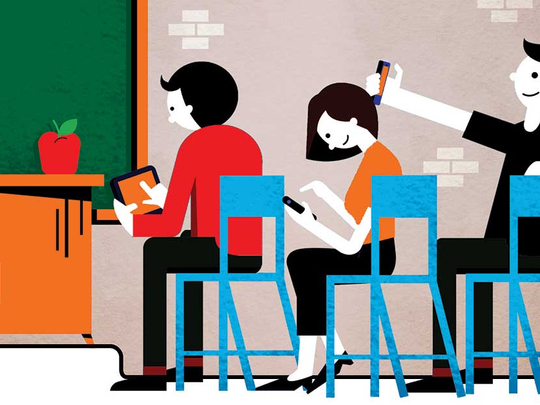
Another year comes to an end for students and teachers. Many students just want to rest from exams and to disconnect from the taxing rhythm of lectures, assignments and tests.
For those who are graduating, this is a time of transition from one life to another (student to employee or entrepreneur) or from one phase in life to another (undergraduate to graduate).
The feeling is then both of nostalgia, for the great moments and relationships of recent years, and of anxiety, for what life has in store, in one’s next, more independent, more mature life. I will have some sending-off words for graduating students shortly.
Teachers also need to get some rest, but they feel a duty to reflect on the past year and assess it. Professors also recall that they have some postponed work to get to (mostly articles and books to read or write) and next year’s plans to start putting together.
Teachers complete “course assessment” reports, either out of job requirement or for their own professional development. In those reports, textbooks, teaching methods, examinations and other pedagogical tools are evaluated.
Inspiration
But for me, the more interesting assessment questions are: What is the most valuable thing I learned this year, particularly from my students? What moment or piece of work inspired me or gave me the most pleasure and happiness this year? Based on this year’s experience, what will I change in my teaching? What do I hope my students will remember from me and my course?
The most striking impression that my students gave me this year was their addiction to their smartphones. This is a sign of the times, a sign of our constant, collective, synchronous connection, our need to be in contact and be informed in real time.
People nowadays can easily forget to carry their wallets, but more rarely their smartphones. It also says something about the future of learning. Students now use their phones to take notes, by simply taking photos of boards and notebooks, or just recording lectures ...
However, it is also a symptom and manifestation of the young generation’s ever-shortening attention span and of their easy distractiveness. They seem to be no longer in control of their minds.
But as I keep telling youngsters, one can only produce quality work by investing large chunks of time and brain power. Discoveries, innovations and insights are not made in 10-minute portions.
On the other hand, I am often impressed by the wide range and amount of knowledge that many students nowadays possess. But sometimes big holes reveal themselves in students’ general knowledge and I find myself asking them: “You really never heard of this?” So it can go both ways.
More often, I get surprised by what the students have already learned. Still, I cannot draw general conclusions, as these are only my personal, anecdotal impressions ...
One thing I did this year for the first time and will try to use more and more frequently is “clickers”. These little tools definitely grab the attention of the students, individually, in small groups, and as a class.
This instant and collective quizzing technique probes the students’ understanding of various topics and uncovers for the teacher areas that need further clarification and correction. In my opinion, it is the single most promising new educational tool that can make a significant impact on learning.
Joy of learning
What gives me most joy is students telling me at the end how happy they are to have taken my course. What I hope they will remember is how great it feels to understand something about the world, nature and the universe and how passionate one can be about his/her subject. As I tell them from time to time, the best thing I can hear from a student in class is “aha ...”
For graduating students in particular, and for other students as well, my main hope is that the desire to learn has taken root in their souls — for the rest of their lives. I hope that through the courses they have taken so far, they will have realised the power and beauty of knowledge, the power and impact of science, the splendour and meaning of art, the force of logic and critical thinking and the paramount importance of human will.
For those who are graduating and moving to another phase of life, I wish to stress the importance of two virtues we do not often stress in our teaching: Humility and generosity. Humility is to constantly remind ourselves that we know so little and are prone to error. Generosity is to constantly remind ourselves that we are in this boat with others, that more often than not we have an easier, luckier life than others, and that we need to help in whatever way(s) we can.
Students often ask me for advice on what field or path they should follow. I always say: follow what you love ... and success will come, sooner or later.
Nidhal Guessoum is a professor of Physics and Astronomy at the American University of Sharjah. You can follow him on Twitter at: www.twitter.com/@NidhalGuessoum.












